
The Indian Grey Hornbill (Ocyceros birostris) belonging to the family Bucerotidae, is the most common and among the smallest of the Indian hornbill species. The family Bucerotidae has 14 genera and 59 species across Asia and Africa. The Indian Grey Hornbill is usually found in the Indian subcontinent (bordering parts of Pakistan, Nepal and Bangladesh). Being a habitat generalist, this species is found in deciduous forests, woodlands, open-thorn forests, city gardens, parks, and plantations. Due to its wide availability in the Indian subcontinent, this species comes under the 'Least Concern' category of the IUCN Red List.
This bird grows up to around 50 to 70 cm., has a brownish-grey body, a long black and white tipped tail, and red eyes. Though the males and females look similar, they can be distinguished by the size of the casque (females have a smaller casque as compared to the males). The casque is a protuberance which is present on its beak. This species is usually omnivorous. It prefers feeding on fruits and berries, especially figs, but also feeds on varieties of insects, reptiles (snakes and lizards), mice, and fledglings of birds.
Bu hikaye Saevus dergisinin SAEVUS JUNE-AUGUST 2023 sayısından alınmıştır.
Start your 7-day Magzter GOLD free trial to access thousands of curated premium stories, and 9,000+ magazines and newspapers.
Already a subscriber ? Giriş Yap
Bu hikaye Saevus dergisinin SAEVUS JUNE-AUGUST 2023 sayısından alınmıştır.
Start your 7-day Magzter GOLD free trial to access thousands of curated premium stories, and 9,000+ magazines and newspapers.
Already a subscriber? Giriş Yap

Staying ALIVE!
The importance of getting to the root causes of conflict with wildlife, is essential. Its mitigation will guarantee the very survival of all species.
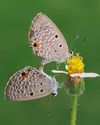
Frames from the WILD
A few amazing shots from a horde of incredible ones!
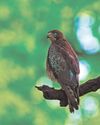
WAKE UP!
A frightening thought a world without wildlife, mornings without birdsong, and all that we take for granted! We must realise the dangers threatening the beauteous green world and its inhabitants around us!

Dolphin DILEMMA!
A crucial article to highlight the significance, and plight of Our riverine friends.

Gecko Quest!
The authors take us on the trail of a gecko from West Bengal, through the hills of the Bankura district.
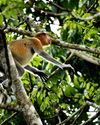
Endangered EXOTICA!
The author takes us on an exotic ride into the forests of Malaysia, allowing us glimpses of the beauties of its wildlife!

Mellifluous Magpie!
Immerse yourselves in the world of the musical and glorious Magpie Robin! The authors help acquaint us with this beautiful bird.

Think Different!
The author brings to us the very real concern for the horses employed around pilgrimage sites in India.
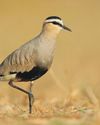
Take Heed!
The authors make a case for the conservation of the rare and lesser-known Sociable Lapwing.
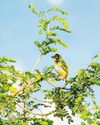
Close Encounters!
The author introduces us to two amazing yet very different bird species, showing us the diversity of our ecosystems,